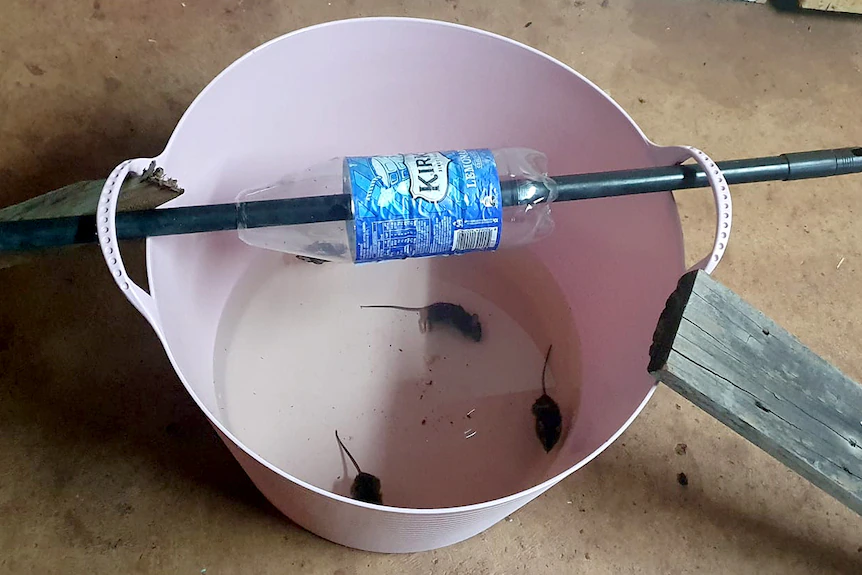



Article by: Hari Yellina
In Queensland’s North Burnett, a mouse infestation has reached epidemic proportions, with residents apparently being attacked in their sleep and produce businesses being invaded by hundreds of rodents every night. Susie Capewell, who lives near Gayndah, claimed she had caught around 1,000 mice in the last two weeks. “Every time you sit in the lounge, the trap snaps, and you have to get up and empty it,” she explained. “We get them largely at night, and the more traps you have, the more you get.” The illness had spread from Monto to Biggenden, according to Gayndah veterinarian Nathan Hitchcock.
“Mice scamper across the roadways at night… and in the last several days, I’ve also seen them during the day, which is unusual. They’re literally everywhere.” Locals, according to Mrs Capewell, are becoming increasingly frustrated as mice find their way into their homes. “I’ve spoken to a couple of folks in town, including one who was bitten in his bed on his hand by something chomping on it,” she claimed. “They’ve been found in people’s hair in their beds at night.” Brett Jordan, proprietor of Gayndah’s Norco Rural Stores, claimed the problem has been present for some months but that rodent numbers had recently escalated. “They usually go away with rain,” he explained, “but they’ve become worse.”
“We’ve probably lost approximately $11,000 in feed this month… it’s being destroyed overnight.” “We’re not going to order any more feed since we’re losing it as fast as we bring it in,” says the manager. “They usually go away with rain,” he explained, “but they’ve become worse.” Growers who normally plant oats at this time of year are delaying because they are concerned that mice would consume the seeds before the crops sprout. He stated the store was having trouble keeping up with the demand for traps and bait.
According to Dr. Hitchcock, last year’s mild winter combined with a wet summer resulted in a lot of grass growth and ideal conditions for a mouse plague. “The grass serves two purposes: it offers cover for the mice and protects them from predators. It also offers them with an abundant food supply “he remarked. “In 20 days, two mice can multiply into 12 mice. As a result, your population increase might be quite dramatic.” Locals have asked the North Burnett Regional Council for help, according to Mr Jordan. “Everyone keeps telling the council that they ought to do something, and that they should start a baiting programme. However, no responses have yet been received “he said.
We reached out to the North Burnett Regional Council for comment. Following a recent surge in dogs and cats being murdered, Dr. Hitchcock has issued a warning to pet owners on the safe use of baiting. “If you think your dog has eaten mouse bait, take it to the doctor as soon as possible,” he advised. Gum bleeding, drowsiness, and blood vomiting are all signs of rat bait poisoning.